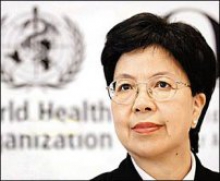World Health Organization Director-General slams trade agreements

Referring to the giant tobacco company that is suing the Australian Government, under a trade agreement containing the controversial but increasingly common Investor State Dispute Settlement clause, for its plain packaging legislation Dr. Chan noted:
“One particularly disturbing trend is the use of foreign investment agreements to handcuff governments and restrict their policy space.
For example, tobacco companies are suing governments for compensation for lost profits following the introduction, for valid health reasons, of innovative cigarette packaging”.”
And Dr. Chan went on to say “If these agreements open trade yet close access to affordable medicines, we have to ask: Is this really progress at all, especially with the costs of care soaring everywhere? "
In her opening address, the Director-General of WHO spoke on a range of related issues of concern to PSI. Dr Chan:
- Praised the dedication of millions of polio workers who helped bring polio to its knees and condemned the targeted killings of polio workers that has contributed to the current emergency situation of polio resurgence internationally
- Evoked universal and ominous trends, notably the disruptive effects of rising inequality and economic exclusion on social cohesion and stability, that threatens economies and future prosperity
- Asserted that wealth does not trickle down, and GDP growth does not mean progress, questioning whether economic growth would be accompanied by proportionate increases in public revenues for health
She stated that:
- Universal Health Coverage goes hand in hand with financial risk protection, especially for the poor, and universal health coverage is one of the most powerful social equalizers of all policy options, the World Bank agreeing that universal health coverage is financially feasible for countries and makes good sense
- It was important, although not easy, to protect health and argue for the supremacy of health concerns over economic interests
- Better health is the best measurement of real progress in poverty elimination, inclusive growth and equity

